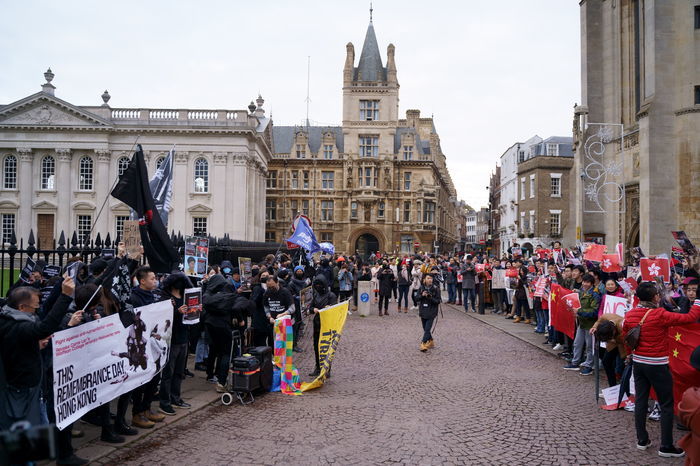University research centre accused of Huawei infiltration
Three directors at the Cambridge Centre for Chinese Management allegedly have ties to Huawei

The Times has this morning (13/09) reported claims that the Chinese tech company Huawei has successfully ‘infiltrated’ a research centre at the University of Cambridge. It is suggested that three of the four directors at the Cambridge Centre for Chinese Management (CCCM) have ties to the Chinese tech firm; and, the centre’s so-called chief representative, Yanping Hu, is supposedly a former senior Huawei vice-president.
In particular, the Times reports that Hu is “entitled to a special allowance” from the Chinese State Council. Purportedly described on the Chinese version of the CCCM’s website as head of Huawei’s Hua Ying Management training centre, the University of Cambridge denied Hu’s involvement in CCCM, a department in the Cambridge Judge Business School, in response to a Freedom of Information request by the Times, claiming that he is not currently providing services or resources to them and has never done so.
The Times claims that all references to Hu have been removed from CCCM’s website since they approached the University.
Johnny Patterson, policy director of the Hong Kong Watch campaign group, has criticised the alleged infiltration: “Huawei’s ties with the Chinese government are no secret. It looks as if the research centre has been infiltrated by Huawei and the university should definitely investigate it. The close links between Huawei and Cambridge University have serious national security and moral implications.”
The claims follow speculation earlier in the year surrounding the University’s hosting of at least three researchers from the Chinese Academy of Engineering Physics (CAEP) and the University’s alleged contribution to expanding Chinese military capabilities. As published by the Telegraph , and reported on by Varsity in March, the University has hosted three researchers from CAEP since 2014, including one scholar focusing on “shock wave and detonation physics”.
According to the Australian Strategic Policy Institute, CAEP exists to explore four key interests: “nuclear weapons, microwaves and lasers for fusion ignition and directed-energy weapons, technologies related to conventional weapons and military-civil fusion.”
This development followed earlier controversy in February, when a report published by the independent think-tank CIVITAS listed the University of Cambridge alongside fourteen other universities as “unintentionally generating research that is sponsored by and may be of use to China’s military conglomerates, including those with activities in the production of Weapons of Mass Destruction (WMDs), including intercontinental ballistic missiles (ICBMs) as well as hypersonic missiles.”
At the time, a spokesperson for the University told Varsity that the report was “a disingenuous misrepresentation of the University of Cambridge. It is wholly reliant on tenuous links between academics, particularly a tutor at one college who conducts no formal research at the University.”
When contacted about the ties between the CCCM and Huawei, the University offered the following statement: “The Cambridge Centre for Chinese Management (CCCM) is a business management programme focused on Chinese business practices. As such, it engages with various sectors of the Chinese economy, including technology companies. The University of Cambridge has a robust system for reviewing all strategic relationships and strict protocols for engaging with any company. Any relationship the University has with any corporate entity, domestic or international, strictly adheres to the guidelines set out by the UK government.”
 News / Candidates clash over Chancellorship25 April 2025
News / Candidates clash over Chancellorship25 April 2025 Music / The pipes are calling: the life of a Cambridge Organ Scholar25 April 2025
Music / The pipes are calling: the life of a Cambridge Organ Scholar25 April 2025 Interviews / Dr Ally Louks on going viral for all the wrong reasons25 April 2025
Interviews / Dr Ally Louks on going viral for all the wrong reasons25 April 2025 News / Cambridge professor paid over $1 million for FBI intel since 199125 April 2025
News / Cambridge professor paid over $1 million for FBI intel since 199125 April 2025 Arts / Plays and playing truant: Stephen Fry’s Cambridge25 April 2025
Arts / Plays and playing truant: Stephen Fry’s Cambridge25 April 2025







